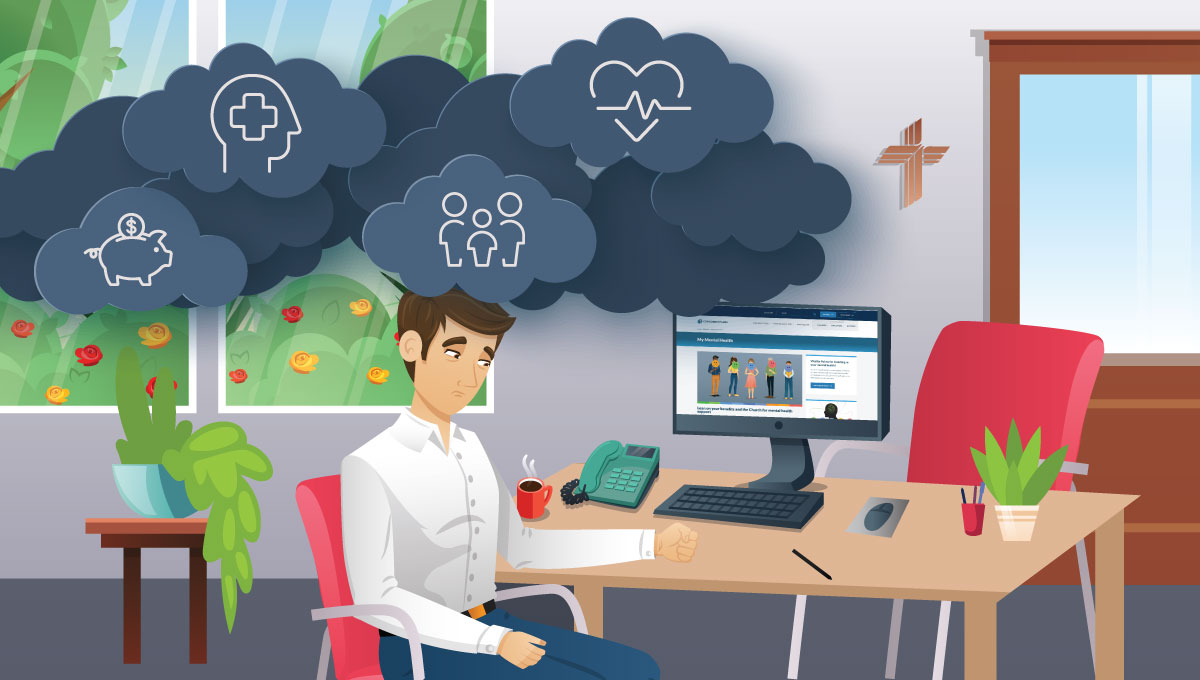How Student Loan Debt can Impact Your Mental Health

Any form of long-term debt has the potential to negatively impact your mental health; Amy Morin, LCSW and editor-in-chief of Verywell Mind, says that people with debt are more likely to develop anxiety and depression. Among the reasons for this is the fact that debt keeps many borrowers from achieving financial milestones and goals, like saving for retirement or buying a home.
Student loan debt in particular can be problematic for borrowers' mental health. "Many individuals don't end up working in the field where they received their degree. Others choose to stay at home with their kids. And many of them get married while they're in debt and their partners assist in helping them pay off their loans," Morin says. "This can lead to feelings of guilt, regret and even despair."
Tips for dealing with student debt to relieve stress
If you're feeling anxious about making your student loan payments, particularly as the end of the administrative forbearance period draws near, you may be tempted to ignore your balance. However, sitting down and evaluating your options will enable you to make smart, informed decisions that positively impact your mental and financial health.
Practical ways to manage student loan debt
Monthly student loan payments can make it hard to focus on other financial priorities. But there are ways to reorganize your debt:
- Adjust your monthly budget. If there are nonessentials taking up space in your budget, like store-bought lattes in the morning, consider cutting them out. An extra $20 each month can help you chip away at your loan balance faster.
- Contact your lender about hardship options. Federal student loans offer several types of deferments and forbearances that will temporarily pause payments, and private student loans often come with something similar. Check with your lender to see what options you have.
- Switch your repayment plan. If you have federal student loans, you can sign up for a repayment plan based on your income, which could lower your monthly payments significantly. If you have private student loans, you can also consider refinancing to a lower monthly payment or interest rate.
- Reach out to a professional. If you're having trouble managing your finances and debt, reach out to a certified financial planner to help create a debt payoff plan that works for you and your financial situation.
- Avoid big expenses. Morin advises waiting to make big purchases like a new house or car right away, since doing so will only lead to more debt. "You'll be able to enjoy those things much more when you feel like you have a solid plan for getting your student loans paid off," she says.
Read more: CP's MinistryFOCUS program, which helps pastors with student debt.
Practical ways to manage stress
Debt may be one of many stressors in your life. To cope with stress, you may try:
- Mindfulness techniques. The daily practice of mindfulness is a research-proven way to cope with stress. Mindfulness and meditation, through prayer, can help lower help lower your stress response and improve both mental and physical health.
- Journaling. Journaling, for some, can be a healthy way to process stressors and the mental and emotional difficulties that come with them.
- Exercise. Daily exercise helps to release endorphins and relieve tension, improving both mental and physical health.
These methods are great for coping with the stressors of daily life, but they aren't the solution for every situation. If the anxiety and mental strain you experience over your student loans is chronic or is interfering with your quality of life, consider speaking to a professional counselor or therapist to help you find coping strategies that work for you.
Visit Mental Health resources for LCMS workers and their families.
The bottom line
Coping with the impact of long-term stress caused by your student loan debt isn't something you should do alone. Whether you seek help through your lender, a certified financial planner or professional counseling, remember that student loan debt is nothing to be ashamed of, and every step you take toward paying it down is a step in the right direction.